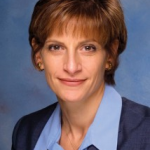 By Peter Galuszka
By Peter Galuszka
Call it the rehabilitation of Helen E. Dragas.
Dragas, the head of the Board of Visitors of the University of Virginia, got into a big mess last spring when she tried and failed to oust popular university President Teresa Sullivan.
After a national embarrassment, the reappointment of Dragas, a politically influential construction firm owner from Virginia Beach, seemed on the line. But as The Washington Post’s Robert McCartney points out, the state’s cosmic forces are lining up to keep her, albeit with a slap on the wrist.
McCartney points out, “She’s a member, or at least a close associate, of an elite group of top business-friendly politicians and corporate executives who often guide the state’s affairs — and they take care of their own.”
Spot on. Dragas was first appointed by Sen. and then-Gov. Tim Kaine and has been actively supported in her trials by Sen. Mark Warner. Both are Democrats, the party favored by Dragas in her political donations. Republican Gov. Robert F. McDonnell went along by not canning her last summer when her botched effort at dismissing Sullivan brought the school unwanted attention.
Virginia has long been ruled by an oligarchy of lawyers, bankers and business people. Their locus had been Richmond, but it has migrated more to Northern Virginia and Hampton Roads as population movement and businesses shift their focus.
One would think that Virginia might grow beyond this traditional and typically Southern model, but apparently it hasn’t. For evidence, take a look at U.Va.’s current board.
Almost everyone is a business person of some sort. I count four lawyers from powerful state firms, a New York area financier, a Texas beer distributor, a coal industry veteran and developers. There’s also a student member, the dean of Johns Hopkins Medical School and the former president of James Madison University.
Contrast that with Harvard University’ Board of Overseers and the picture gets a lot more interesting. There are business people and lawyers, to be sure. But there’s also a writer-in-residence from Yale, a concert violinist and professor, distinguished biographers and journalists, and even an astronaut.
It seems obvious that Harvard’s board might have a broader vision than the strictly-business views at Mr. Jefferson’s University. That’s a shame, because one of Dragas’s initiatives was to reassess and perhaps dismantle some of her university’s strengths, such as teaching the classics and non-mainstream foreign languages.
A personal note: last night, I attended a dinner sponsored by the World Affairs Council of Greater Richmond of which I am a member. One of my table mates was a young woman who graduated from U.VA. in 2011 and had spent a number of months in Dushanbe, the capital of the former Soviet Republic of Tadjikistan. I had spent some years in the Soviet Union and later Russia and although I had never been to Tadjikistan, I knew and worked with people from there.
The young woman got her start in Charlottesville because the university offers relevant languages including Persian. She also picked up some Tadjik and Dari. “They even offer Tibetan,” she said.
Will that survive if the Dragas approach continues? Good question.Big Business wants more engineers and researchers. Some members of the U.Va. board think it’s time to think more Chinese, and streamline courses to those that can make a buck faster. After all, it’s been in the op-ed pages of The Wall Street Journal and maybe they read “The Battle Hymn of a Tiger Mother,” so that has to be the appropriate course of action.
On the block might be Persian, not to mention more universal tongues such as German. Good luck next time this country needs a skilled linguist in an during the next time of terror.
With Dragas on the way to rehabilitation, the University of Virginia is hardly out of the woods.


